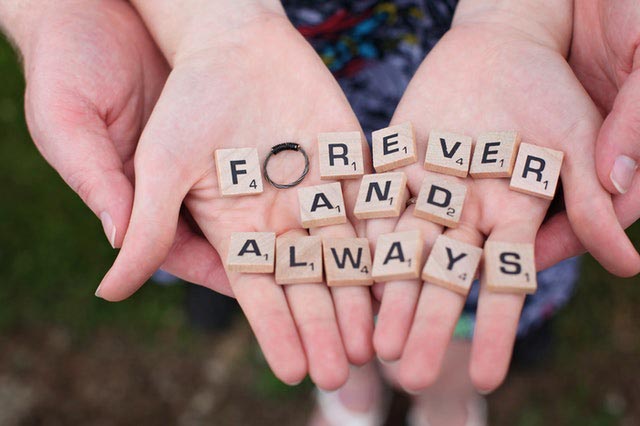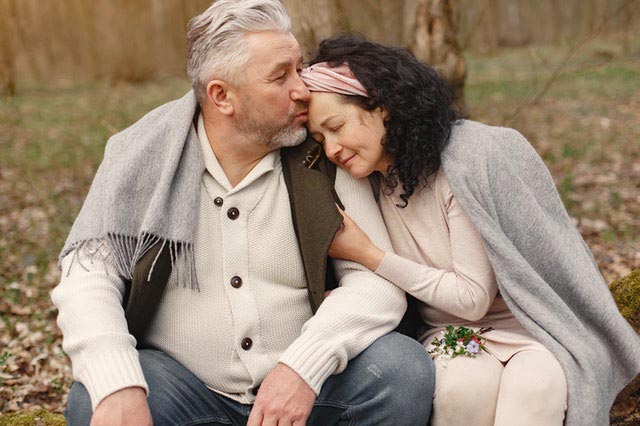Why Is Love Important For Brain Health
Love changes us. It challenges the way we think and it changes the way we behave. While the beginning stages of love often frighten us, the long-term benefits of long-lasting love, whether in our romantic relationships or friendships, are endless, including contributing to brain health.
LOVE AND BRAIN HEALTH

When we start the process of falling in love, there are three main neurotransmitters (or biochemicals) involved: dopamine, the feel-good chemical, vasopressin, and oxytocin. Love makes us feel a rush of emotions, good and bad.
When we start the process of falling in love, there are three main neurotransmitters (or biochemicals) involved: dopamine, the feel-good chemical, vasopressin, and oxytocin. Love makes us feel a rush of emotions, good and bad.
Photo by Nathan McBride on Unsplash
Dopamine
The euphoric rush that we get when we fall in love, is due to dopamine, the neurotransmitter associated with the reward system in the brain which regulates our feelings of happiness. It is often referred to as the love chemical in the brain and because our brain loves to love and the euphoric feeling that love brings, we tend to always look for things that bring us closer to happiness. Dopamine allows you to enjoy the process of falling in love, being in love and the time spent with your partner. With that being said, at times excessive amounts of dopamine can lead to irrationality, jealousy, and poor judgment. Blocking out important information, such as red flags, bringing much truth to the expression, “Love is Blind.”

Photo by Lovefreund
Too much dopamine adds stress to the body. High levels of cortisol combined with high levels of dopamine create a frantic state of mind. Often people become very antsy, nervous, and slightly paranoid when they first meet someone they’re interested in and while this is completely normal, a lot of it is due to high levels of dopamine being present in the brain.
Oxytocin
The hormone for bonding, allows people in love to feel calm and secure and helps to form bonds of attachments. This is the same love chemical that is dominant between a mother and her child right after birth. Oxytocin is also the love chemical that makes your partner unique to you. Oxytocin is responsible for how you make behavioral adjustments for your loved ones. It motivates you to change how you would normally go about solving problems so that you can maintain your relationship, regardless of the problems. It plays a huge role in our ability to compromise with people that we love.
Vasopressin
It helps you to build long-term, healthy relationships. This love chemical allows you to prefer your partner over others. It helps you to build bonds and connections that lead to long-lasting friendships and romantic relationships filled with love. When the rush of falling in love subsides, it’s oxytocin and vasopressin that keeps the love going throughout the years. And as dopamine levels lower and the chemicals in your brain become more balanced, you become less stressed and more secure in your relationship. Over time cortisol and serotonin levels return to normal and the rollercoaster of emotions often associated with falling in love will cease to exist.
Dopamine, vasopressin, and oxytocin determine how we love and how we feel while we fall in love. They can create an amazing euphoric experience that, while at first may be terrifying, later becomes the cornerstone of safety, personal development, physical and mental (brain) health. Love is great for a healthy brain.

Photo by Leah Kelley from Pexels
Love also helps with creating healthy and positive thinking patterns. The brain constantly develops neural pathways and these pathways determine how we process information, what we feel, and ultimately, what we do. Love helps to deactivate negative neural pathways and build/reaffirm positive pathways providing positive changes to our brain and overall brain health. Forming these positive pathways allows you to look at life from an optimistic point of view and combats cynicism.
LOVE IN THE BODY

Photo by Andrea Piacquadio from Pexels
The right kind of love can certainly reduce stress. Stress not only deprives you of sleep and focus, but it also wrecks your immune system. Love allows people to feel safe and lowers levels of anxiety and depression. Love has been known to help nurture the microbiome found in your gut that helps fight off harmful bacteria. Love has been proven to lower blood pressure and reduces the likelihood of developing negative long-term habits (i.e. smoking, drinking, etc). Research shows that depression and anxiety are often curbed by forming loving, helpful, and meaningful relationships with other people.

Photo by Lovefreund
Love helps you live longer. People who are in a long-term commitment, relationships and friendships are more motivated to take care of themselves. Love provides accountability with partners for health and life goals. Love provides a source of encouragement and positive life experiences. Love is often why people are willing to survive and endure hard times. Having people that you love, rely on, and feel safe with improves every area of our lives, even if the relationship is not romantic. Meaningful friendships and connections to the family are just as important as romantic relationships. The diversity in these relationships allows love to grow in many areas of our lives, providing more experiences and interactions with people that we love and that love us in return.
We are wired for love. Our brains and our bodies work best when we love others, so although it may seem scary at first, falling in love is one of the healthiest things we can do. Love your brain by filling your life with thoughtful and intentional relationships. Loving others will help you love yourself.





